Here are 10 things you should know about Edgar Kennedy, born 133 years ago today. No one lost his temper on screen quite like he did.
Tag: Jack Dempsey
365 Nights in Hollywood: Reckless Reels
RECKLESS REELS
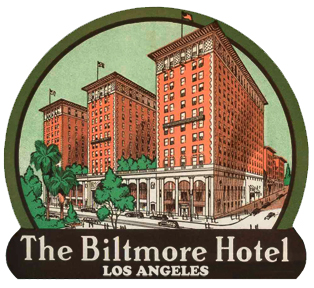 . . . a jazz band . . . colored spotlights . . . evening gowns . . . and stiff shirts . . . laughter . . . silver flasks . . . smacked lips . . . bluish-grey clouds of lingering smoke . . . The Biltmore ballroom on Saturday night . . . the new playground of the movie folk . . . Art Hickman . . .
. . . a jazz band . . . colored spotlights . . . evening gowns . . . and stiff shirts . . . laughter . . . silver flasks . . . smacked lips . . . bluish-grey clouds of lingering smoke . . . The Biltmore ballroom on Saturday night . . . the new playground of the movie folk . . . Art Hickman . . . Times Square Tintypes: William A. Brady
“THE GAMBLER FROM THE WEST”
 Was born in San Francisco, June 19, 1863. Until he was five years old he had a Chinese lady for a nursemaid.
Was born in San Francisco, June 19, 1863. Until he was five years old he had a Chinese lady for a nursemaid.Times Square Tintypes: David Belasco
“THE GREAT WIZARD OF 1888”
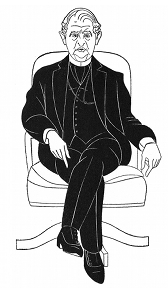 Claims he feels as spry today as he did at the age of twenty-one. If you doubt it, he’ll race up and down the corridor to prove it to you. His one great wish is to die in harness.
Claims he feels as spry today as he did at the age of twenty-one. If you doubt it, he’ll race up and down the corridor to prove it to you. His one great wish is to die in harness.A motion picture potpourri
 There are dozens—perhaps hundreds—of places one can view streaming movies on the web—some legal, others not so much. But none that we’re aware offer the opportunity to view the sort of cinematic offerings found at Europe Film Treasures.
There are dozens—perhaps hundreds—of places one can view streaming movies on the web—some legal, others not so much. But none that we’re aware offer the opportunity to view the sort of cinematic offerings found at Europe Film Treasures.
With the longstanding dominance in the world market of Hollywood pictures, it’s easy sometimes to forget that other corners of the world have long had their own motion pictures industries, thriving and otherwise.
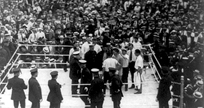 Europa Film Treasures, is the result of, as the website states, “a partnership with the most prestigious archive resources and film archives in Europe.” Experienced and fledgling film buffs can use the site to fill the gaps in their knowledge.
Europa Film Treasures, is the result of, as the website states, “a partnership with the most prestigious archive resources and film archives in Europe.” Experienced and fledgling film buffs can use the site to fill the gaps in their knowledge.
The site boasts more than 120 streaming movies, dating as far back as 1896 and as recent as 1999. The vast majority of the titles, though, predate 1960.
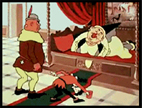 Most of the films, produced in dozens of different countries, including Germany, Ireland, Macedonia, England, France, Sotland, Croatia, Sweden—we could go on and on (there are even a few odd American titles thrown in for good measure)—are shorts, though one does come across the odd feature-length film—El Sexto Sentido (The Sixth Sense), for example, a late-1920s silent drama from Spain that was considered too modern for its time and was never released.
Most of the films, produced in dozens of different countries, including Germany, Ireland, Macedonia, England, France, Sotland, Croatia, Sweden—we could go on and on (there are even a few odd American titles thrown in for good measure)—are shorts, though one does come across the odd feature-length film—El Sexto Sentido (The Sixth Sense), for example, a late-1920s silent drama from Spain that was considered too modern for its time and was never released.
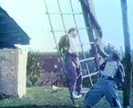 Now, where else are you going to find a rarity like that—or a French cartoon from 1947? Or a 1939 Finnish documentary short about traditional methods of net fishing? Or a 1909 one-reel Belgian drama about a jealous husband out to seek revenge on his wife and the interloper who loves her?
Now, where else are you going to find a rarity like that—or a French cartoon from 1947? Or a 1939 Finnish documentary short about traditional methods of net fishing? Or a 1909 one-reel Belgian drama about a jealous husband out to seek revenge on his wife and the interloper who loves her?
You get the idea. Europa Film Treasures is aptly named—the site really is a treasure, one we highly recommend you begin perusing at your earliest convenience.
